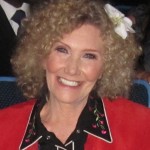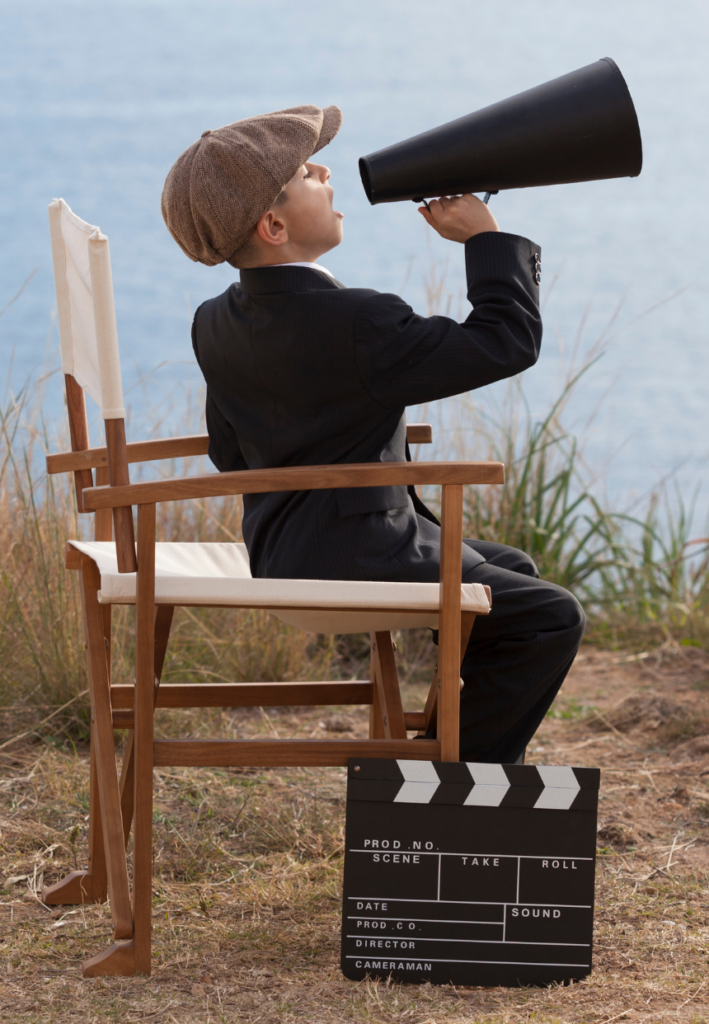Exploring the Hidden Nuances of Comedy Writing Along with The Timeless Allure and Lessons of Classic Films
by Carole Dean
For years, Steve Kaplan has reigned supreme as a luminary in the comedy domain. His profound insights and invaluable contributions have solidified his position as one of the most respected authorities in the industry.

His first book, the Hidden Tools of Comedy, is a bestseller in its field. Steve has taught workshops at companies such as Dreamworks, Disney Animation, NBC’s Writers On The Verge and others. He has taught his comedy intensive workshops around the world from Los Angeles to Mumbai to New York, from Australia to Rio.
I was fortunate to have him as a guest in my The Art of Film Funding Podcast. In this extensive interview he discusses his second book The Comic Heroes Journey, serious Story Structure for Fabulously Funny Films which peels back the layers of comedic storytelling, revealing the underlying truths that resonate with audiences on a profound level.
The Genesis of a Comedy Maestro
Steve’s journey into the film industry defies convention, mirroring the unpredictability and eccentricity often associated with comedy itself. Through a blend of originality, innovation, and sheer determination, Steve carved out a niche for himself, setting the stage for his eventual transition to the world of film.
“Well, I originally got started in the film industry by not being in the film industry,” Steve explained. “I started out as a theater director. A couple of actors, friends of mine wanted to start a theater in New York, and they asked me to join in.
“I pitched them a theater that was completely devoted to comedy, which was at that time in New York, not very usual. And so we started it, we called it the Manhattan Punchline, and it wasn’t a standup club, it was a theater completely devoted to comedy.”
After it closed, he thought “what can I do with all this information that I have about comedy?” And so he went to Los Angeles and got a gig at HBO doing some developmental work for them.
Along the way, somebody suggested he could do for comedy what Robert McKee does for story. He started a small workshop in Los Angeles which grew into workshops in New York, in London, in Tel Aviv. That led to relationships with writers and producers.
“So that’s how I kind of got started in the film industry by focusing on one thing that was important to me. And that’s what comedy is, how it works, why it works, what’s happening when it doesn’t work, and what can you do to fix it.”
Unveiling the Essence of Comedy
At the heart of Steve’s philosophy lies a profound understanding of the essence of comedy. Beyond the superficial realm of laughter, he contends that comedy serves as a mirror to the human experience, illuminating our struggles, triumphs, and idiosyncrasies.
Through his seminal work, “The Hidden Tools of Comedy,” Steve draws from his vast reservoir of knowledge and experience. He elucidates the intricate dynamics of humor, offering invaluable insights into the art of crafting comedic narratives.
“A lot of people think comedy is simply what you’re laughing at. If it’s funny, if you’re laughing at it, that’s comedy. But, I have a niece, and when she was very little, if I shook my keys at her, she would laugh at that. So to her, that was funny.
“But you wouldn’t take a set of keys and shake them to an agent at CAA and say, would you sign me? Maybe I can develop this into a feature.”
Steve believes that comedy is the art of telling the truth, and specifically, it’s the art of telling the truth about human beings.
It’s about somebody who is an ordinary or less than ordinary person struggling against insurmountable odds without many of the required skills and tools with which to win, yet never giving up hope.
The Rule of Three
“Buster Keaton said, you get a man up a tree, you throw rocks at him, you get the man down from the trick,” Steve expounds. Comedy is “all about somebody very much like us struggling against something that’s outside of their control and not giving up.”
Steve says this is called the comedy equation. From it, you can draw usable, practical tools to write comedy. Other hidden tools are what he writes about in his second book The Comic Heroes Journey, serious Story Structure for Fabulously Funny Films which are the things that people aren’t being taught in colleges or universities.
“If you dig deep into how comedy is working and what’s happening, these are useful tools in terms useful practical tools in terms of creating comedy.”
Deconstructing Cinematic Gems: A Case Study of Groundhog Day
Groundhog Day stands as a testament to the timeless appeal of comedic storytelling, transcending generations with its universal themes and enduring charm. Steve delves into the intricacies of this cinematic masterpiece, dissecting its narrative structure, character development, and thematic resonance.
Through the lens of the “Comic Hero’s Journey,” he unveils the transformative arc of protagonist Phil Connors, whose journey from cynicism to enlightenment serves as a poignant allegory for the human condition.
“A guy wakes up every day and it’s the same day, it’s Groundhog Day,” Steve says diving into the movie’s plot, “and that’s a lie. That could never happen. But if it did happen, if it does happen, what can happen next?
“A comic premise is developed by characters. And characters are brought on into a story by need and theme. You have a scene with a boy and a girl at a cafe. Who do you need? Do you need a waiter or a waitress? But characters are also brought on through theme in ‘Groundhog Day’. The theme is ‘how can you be a good person in the world?’
“One of the things about ‘Groundhog Day’ and about great comedies is that it not only appeals to your sense of humor, it makes you laugh, it makes you care, but it also makes you think, and that’s why ‘Groundhog Day’ has been adopted by every major religion.
“So a great comedy not only has a great premise, a great setup, it has great characters and it has great meaning.”
Legacy of Laughter: Celebrating the Genius of Charlie Chaplin
Reflecting on the indelible legacy of Charlie Chaplin, Steve references him frequently in his books.
Through his groundbreaking work, Chaplin revolutionized the art of silent comedy, imbuing his characters with humanity, empathy, and resilience. Steve explores the enduring appeal of Chaplin’s films. He sheds light on the universal themes and timeless truths that continue to captivate audiences to this day.
About the character Chaplin plays in “City Lights”, Steve says ” he’s not the brightest, but he keeps trying his best to help the blind girl or to figure out how to serve when he’s playing the waiter, he’s trying to serve all these plates while everybody’s dancing, and it’s impossible.”
“What we love about Charlie Chaplin is that it’s universal, his universal humanity, and that humanity without the restriction of language is available to everybody because everybody shares the same things that great comedians do. It’s tough to get by.”
Crafting Comedy with Precision: Unveiling the Hidden Tools
At the core of Steve’s methodology lies a meticulous approach to comedic craftsmanship. Through his innovative framework of “hidden tools,” he empowers writers and performers to unlock the full potential of their comedic endeavors.
Concepts such as the “non-hero” and “straight line, wavy line” serve as foundational principles for creating authentic, relatable characters that resonate with audiences on a profound level.
Steve says “the idea of winning comedy gives your characters the permission to win. But it also gives your characters the permission to do what they need to do in order to win.”
By understanding the nuances of comedic performance and narrative structure, creators can harness the transformative power of laughter to entertain, enlighten, and inspire.
Populating the Comedy Landscape: Kaplan Comedy Workshops
At the height of pandemic in October of 2020, Steve began offering his intensive comedy workshop online for the first time. It was wildly successful.
Now he teaches online and you can go his Kaplan Comedy website to learn more. He is teaching the Hidden Tools online, and also teaching a course in the Comic Heroes Journey, what he calls ‘write your comedy screenplay.’
He has started up live workshops again. This coming December, he is going to be teaching at the university in Milan, and is probably going to be also teaching a workshop in London.
You can join his mailing list at mailinglist@kaplancomedy.com to learn more.
A Tribute to the Transformative Power of Laughter
Steve leaves us with a poignant reminder of comedy’s enduring legacy and transformative power.
Beyond its capacity to entertain and amuse, comedy serves as a catalyst for introspection, empathy, and connection. Through laughter, we find solace in the shared absurdities of human experience, transcending barriers of language, culture, and geography.
With unwavering passion and boundless enthusiasm, Steve Kaplan continues to champion the art of comedy. He is inspiring generations of creators and audiences alike to embrace the joy of laughter and the beauty of shared humanity.
Carole Dean is president and founder of From the Heart Productions; a 501(c)3 non- profit that offers the Roy W. Dean Film Grants and fiscal sponsorship for independent filmmakers.
profit that offers the Roy W. Dean Film Grants and fiscal sponsorship for independent filmmakers.
She is creator and instructor of Learn Producing: The Ultimate Course for Indie Film Production. Essential classes for indie filmmakers on how to produce their films.
She hosts the weekly podcast, The Art of Film Funding, interviewing those involved in all aspects of indie film production. She is also the author of The Art of Film Funding, 2nd Edition: Alternative Financing Concepts. See IMDB for producing credits

